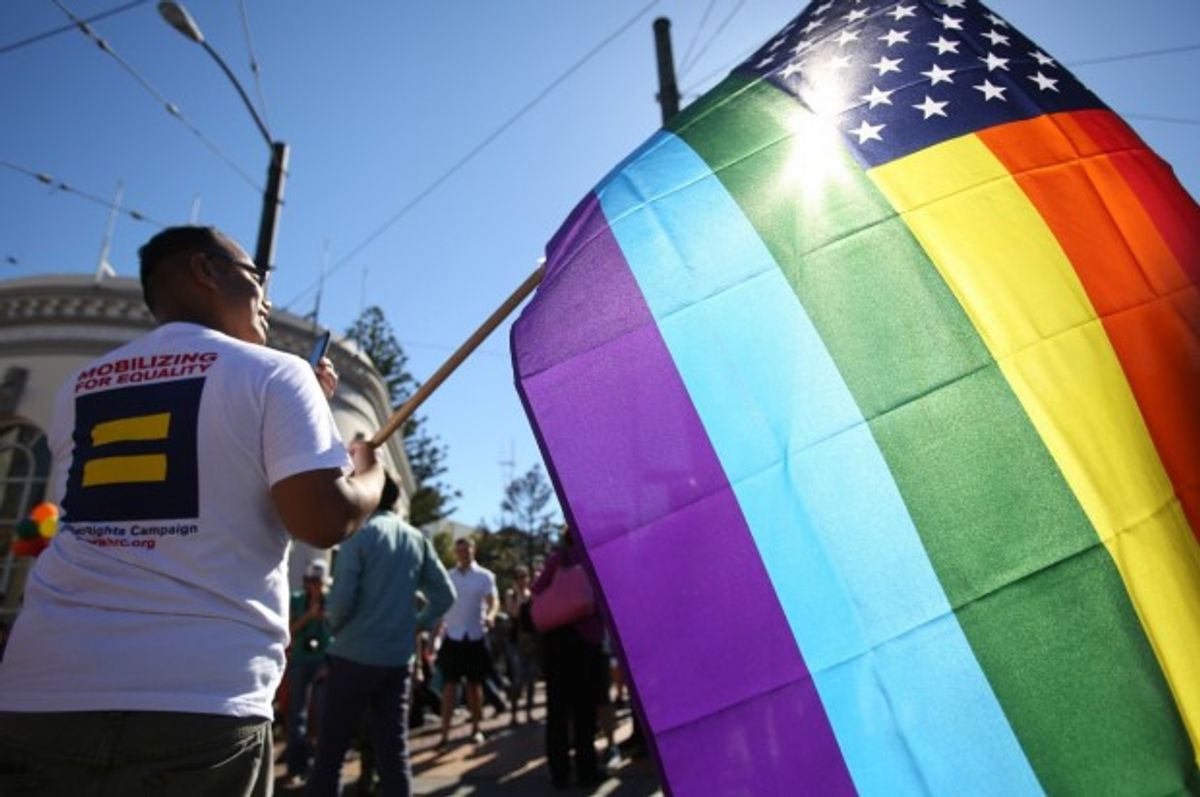The Supreme Court agreed Friday to take up the constitutionality of state bans on same-sex marriage, setting the stage for a historic ruling on a question the Court has never before addressed.
The High Court decided to weigh the matter just three months after declining to do so. In October, the Court let stand a series of lower court rulings in favor of same-sex marriage, vastly expanding the number of states in which same-sex nuptials are allowed; more than 70 percent of Americans now live in states where gay couples can wed, compared with roughly 30 percent in the aftermath of the Court's June 2013 decisions striking down a key provision of the Defense of Marriage Act and effectively allowing same-sex marriage to proceed in California.
Until this fall, all federal appeals courts to rule on the constitutionality of same-sex marriage bans found that they violated the Constitution's equal protection clause. But shortly after the Court let the lower court rulings stand, the Sixth U.S. Circuit Court of Appeals affirmed bans in Ohio, Michigan, Kentucky and Tennessee. The Sixth Circuit's ruling set up a so-called intercircuit conflict, which often prompts the Supreme Court to weigh in and issue the final say on a matter.
Marriage equality advocates remain hopeful that they can secure a pro-equality ruling from the Court, thereby making marriage equality the law of the land. Justices Ruth Bader Ginsburg, Stephen Breyer, Sonia Sotomayor, and Elena Kagan, all Democratic-appointed justices, are seen as relatively safe bets to rule in favor of equal marriage, and Justice Anthony Kennedy, who was appointed by President Ronald Reagan in 1987, has staked out firmly pro-gay rights positions, as well. Kennedy authored the 2013 ruling against Section 2 of the Defense of Marriage Act, which had prohibited the federal government from recognizing same-sex marriages.
The Court is likely to hear arguments late this term, with a ruling expected in late June.

Shares